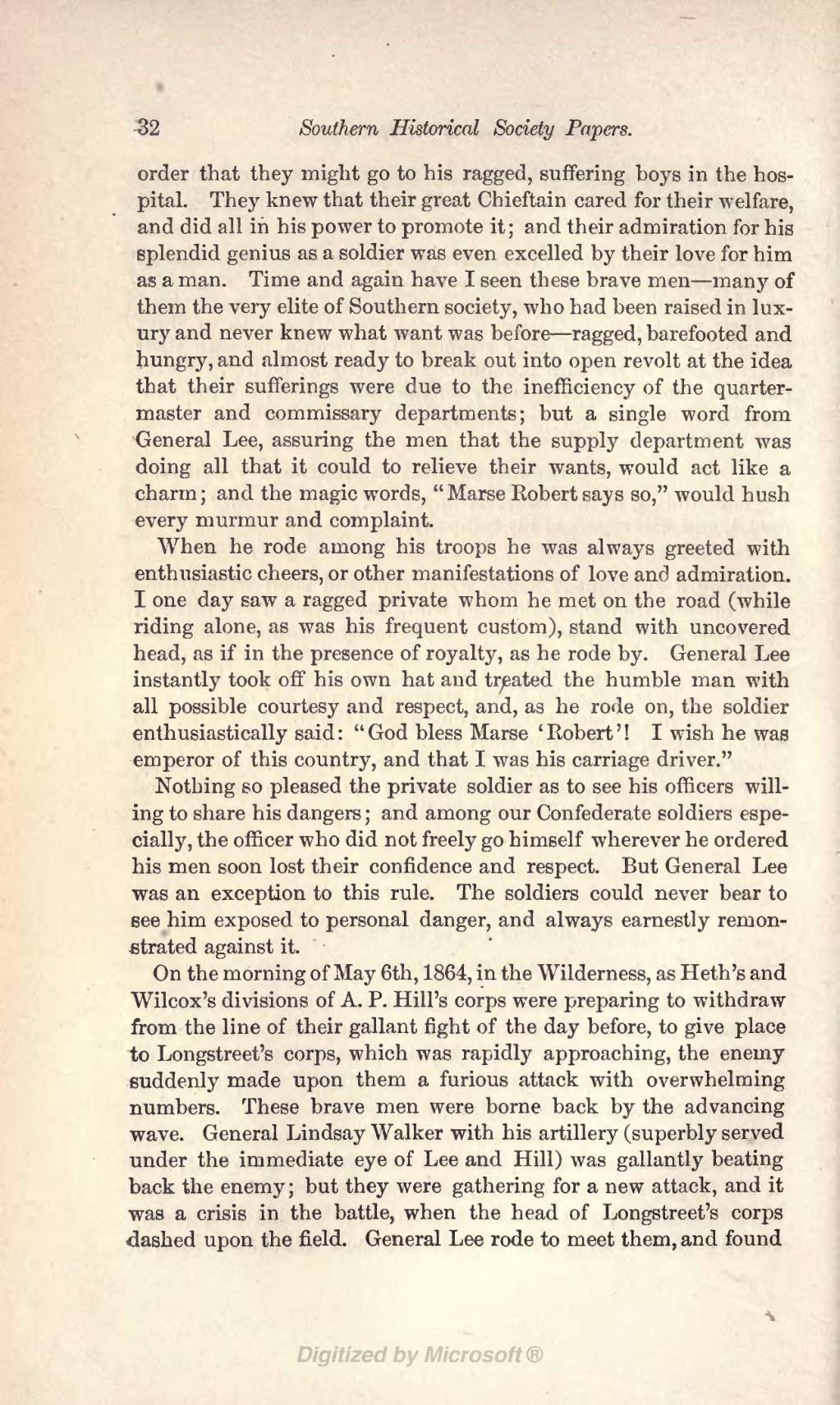order that they might go to his ragged, suffering boys in the hospital. They knew that their great Chieftain cared for their welfare, and did all in his power to promote it; and their admiration for his splendid genius as a soldier was even excelled by their love for him as a man. Time and again have I seen these brave men—many of them the very elite of Southern society, who had been raised in luxury and never knew what want was before—ragged, barefooted and hungry, and almost ready to break out into open revolt at the idea that their sufferings were due to the inefficiency of the quartermaster and commissary departments; but a single word from General Lee, assuring the men that the supply department was doing all that it could to relieve their wants, would act like a charm; and the magic words, "Marse Robert says so," would hush every murmur and complaint.
When he rode among his troops he was always greeted with enthusiastic cheers, or other manifestations of love and admiration. I one day saw a ragged private whom he met on the road (while riding alone, as was his frequent custom), stand with uncovered head, as if in the presence of royalty, as he rode by. General Lee instantly took off his own hat and treated the humble man with all possible courtesy and respect, and, as he rode on, the soldier enthusiastically said: "God bless Marse 'Robert'! I wish he was emperor of this country, and that I was his carriage driver."
Nothing so pleased the private soldier as to see his officers willing to share his dangers; and among our Confederate soldiers especially, the officer who did not freely go himself wherever he ordered his men soon lost their confidence and respect. But General Lee was an exception to this rule. The soldiers could never bear to see him exposed to personal danger, and always earnestly remonstrated against it.
On the morning of May 6th, 1864, in the Wilderness, as Heth's and Wilcox's divisions of A. P. Hill's corps were preparing to withdraw from the line of their gallant fight of the day before, to give place to Longstreet's corps, which was rapidly approaching, the enemy suddenly made upon them a furious attack with overwhelming numbers. These brave men were borne back by the advancing wave. General Lindsay Walker with his artillery (superbly served under the immediate eye of Lee and Hill) was gallantly beating back the enemy; but they were gathering for a new attack, and it was a crisis in the battle, when the head of Longstreet's corps dashed upon the field. General Lee rode to meet them, and found
